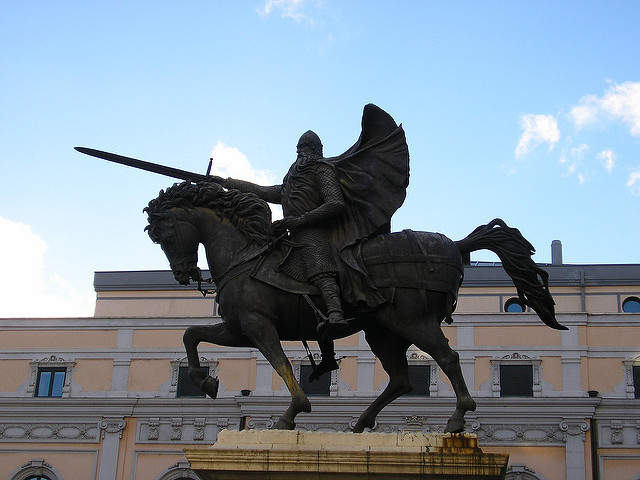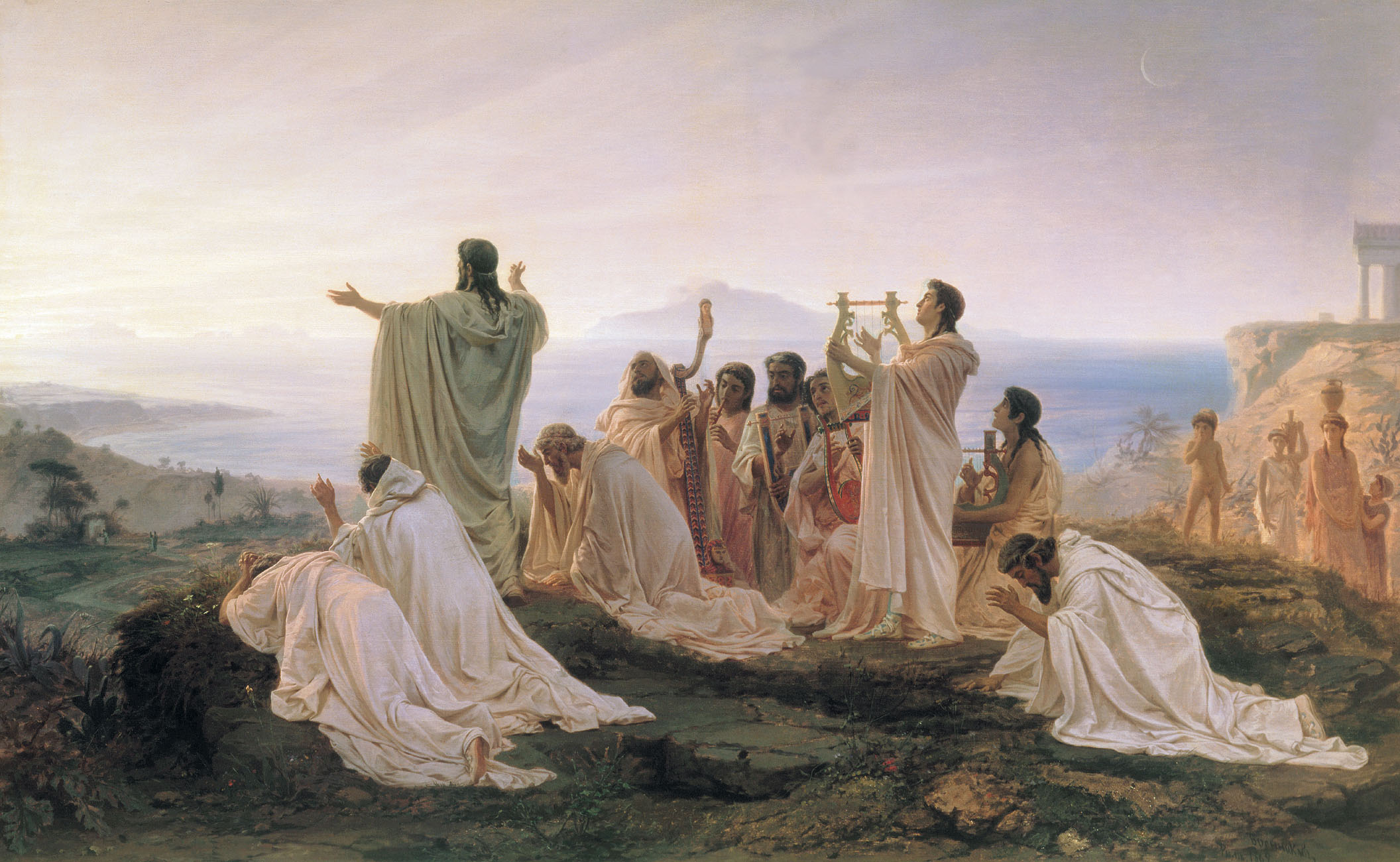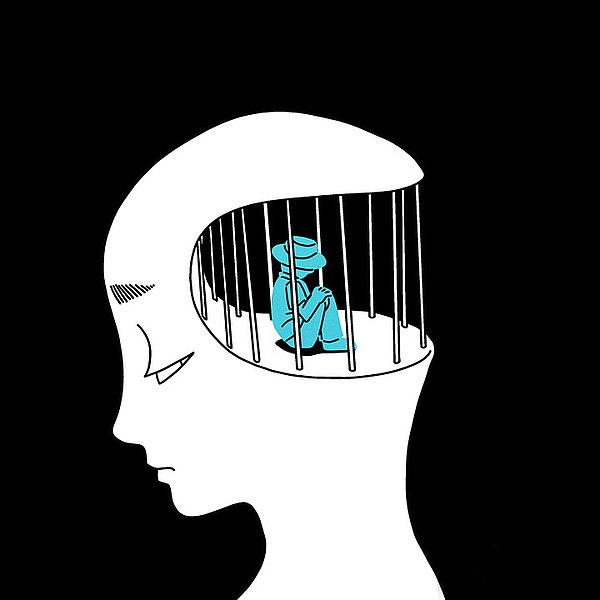Inner Freedom
Article By Guner Orucu
 Freedom is a concept that has always preoccupied mankind. We all want to be free; but free from what? Do we really know what kind of freedom we are looking for or how we can reach that freedom?
Freedom is a concept that has always preoccupied mankind. We all want to be free; but free from what? Do we really know what kind of freedom we are looking for or how we can reach that freedom?
We are going to use philosophy to investigate and to understand freedom with an emphasis on inner freedom, which is more important and valuable than the physical freedom that is popular today. Inner freedom is the freedom of our mind, emotions, and actions. What are those forces, which prevent us from finding inner freedom? What are the factors which prevent our free thinking, free feeling and free action?
We need to know about the nature of human beings to be able to deal with the problem of freedom. Philosophy has been seen as a way to know oneself in Ancient Greece and Rome. Knowing oneself allows us to know how we think and feel, to recognize the obstacles to inner freedom. Discovering our human nature will help us discover the kind of freedom we deserve to have.
Freedom is a state of mind and heart, not dependent on any circumstances or person, yet not isolation or immobility either. The concept of “dependency” plays an important role in understanding freedom. To be independent does not mean to be isolated from people or actions, which can lead to change things but rather not to be dependent on conditions and other people in our thinking, feeling and actions. In relation to dependency, any attachment to a condition, an object, status, career, or a person means the loss of our freedom, as the attached condition will determine our thinking and feeling.
Human beings are in a constant battle of various internal forces and freedom is the action stemming from our intelligence and free will among these many forces. Freedom means not to be controlled and driven by these forces but by our intelligence and free will. What are these other forces; hatred, anger, envy, prejudices, mental and emotional habits, automatism are some of them.
If we take anger as an example; when anger is present in our mind, it tries to control our thinking and actions and if it does, then it begins to drive us in the direction it wants to go. It tries to unload its destructive energy on something or someone. We, as a being of intelligence and free will, have to stand against our anger, not to be controlled by it but to control and root it out. How can we achieve this? First of all, by becoming aware of our anger, accepting the existence of this destructive emotion within us. And then we need to know more about it; how it prevails upon us, what are the conditions that help it to grow and bring it to power, why it never helps to resolve problems, why we regret at the end when our actions were driven by anger. As we know more about our inner enemies, we shall be more advantageous before them so we can develop better strategies to battle them. Martial arts aim to develop these strategies to defeat our inner enemies.
Another example is our mental habits. We tend to think in patterns, which is easier than thinking in a creative and free way. These mental patterns might be developed by different factors such as society, religion, fashions, family, education, media, etc. If we begin to think in the way a religion, or an advertisement, or a society or a fashion taught us, we lose our free thinking ability because we don’t think but follow a mental pattern, which has a determined destination for us. Thinking always reaches the same result at the end of a mental pattern. We cannot be creative and innovative under the pressure of a mental pattern. We cannot see different aspects and depth of a problem when we follow a mental pattern.
Superstitions are extreme cases of mental patterns, where a mental pattern becomes so strong and deep in the mind. It is too difficult to get rid of the pressure of a superstition. When we look at the history of humanity, we find some periods of suffering in which a society is driven by some superstitions such as during the Middle Ages of Europe. Superstitions also trigger off different types of fears that rob us of our freedom.
What about prejudices? Societies or individuals turn a previous experience into a mental pattern and begin to follow it in similar circumstances. A prejudice prevents us seeing things as they are because we see them through the lens of a mental pattern engraved in our mind. For example, a painful experience with a friend in the past might turn into a prejudice that makes us think that people are not trustworthy as friends. This prejudice prevents us from establishing new relations freely. It is a loss of freedom in the way of making new friends. Being cautious is different from following a prejudice blindly.
You can see some tendencies in the society to think in a particular way on some subjects. We are not talking about Common Sense, which is related with wisdom of the society. For example, we might think that happiness comes with having a car, a career, or a holiday, as it is associated with these things. We think with concepts, which are defined by media, religion, friends, society or education unless we bother to investigate and learn more deeply ourselves. In this case, when we use a concept to think, we think with the meaning given by a religion, media, the age, culture etc. For example, freedom is generally understood as physical freedom today. The freedom to buy what you want, the freedom to go wherever you want, the freedom to do whatever you want. Another example is the term philosophy, which has lost its classical meaning today. Philosophy simply means love of wisdom but we tend to think of “philosophy” as a boring and useless thing, an intellectual occupation far away from practical life. We despise our friends by saying, “do not philosophize” when they talk outside of mainstream society or outside of the usual conventions. We don’t feel any need to spend time on philosophy as we see it aloof and alien to life.
The loss of freedom ends in suffering. Even when you look at the world of animals, you can clearly see how painful it is for them to live in a cage or a confined space. Birds have become the symbol of freedom in many ancient traditions; especially confining a bird into a cage, taking away its freedom to fly does not make sense when we are that sensitive about our own freedom. We know the pain when freedom is lost, so why do we want to inflict the same pain on animals?
The discovery of ourself is a long but necessary journey that we all have to make and philosophy has been the best company of mankind in this long and arduous journey. This is also a journey to our inner freedom, which cannot be taken away by any outer factor or condition but comes with the self-knowledge.
Let’s remember the famous motto from Greek philosophers; “Know thyself”, and make it a guide in our lives to find out the freedom that we long for.
Guner Orucu
Sydney 2010
www.acropolis.org.au
Image Credits: By james moore | Flickr | CC BY 2.0
The entity posting this article assumes the responsibility that images used in this article have the requisite permissionsImage References
By james moore | Flickr | CC BY 2.0
Read the original article on http://www.acropolis.org.au/resources/articles/InnerFreedom.pdf
Permissions required for the publishing of this article have been obtained




What do you think?